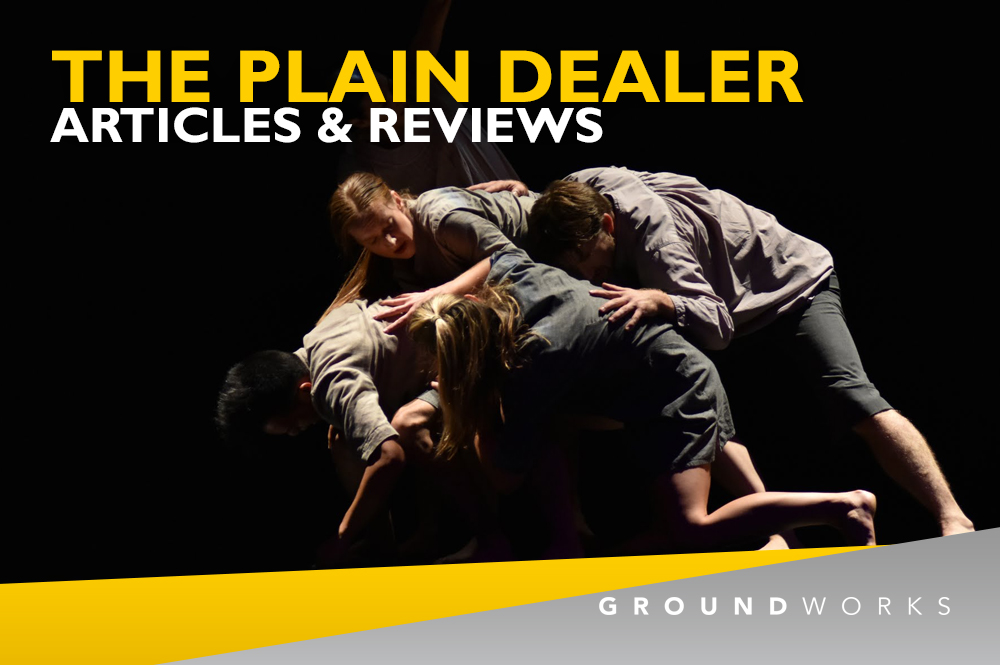Project Description
GroundWorks DanceTheater adds new ‘Shadowbox’ work to ‘Violins of Hope’ project
By Zachary Lewis, The Plain Dealer
CLEVELAND, Ohio – “Violins of Hope” isn’t strictly a musical project.
Beyond the concerts, beyond the exhibition, beyond the films, Cleveland’s GroundWorks DanceTheater this week is contributing a related work of dance.
Titled “Shadowbox,” the new piece by GroundWorks director David Shimotakahara being premiered this weekend seeks to convey through physical movement a sliver of the angst and uncertainty experienced by those ensnared in the Holocaust.
“The terror was that people never knew what the outcome would be, that their lives were hanging in the balance,” explained the choreographer.
Not that music has been banished from the proceedings. Far from it. In fact, all three works on the program, the group’s fourth annual fall series, are built on notable compositions.
“Shadowbox,” for instance, derives some of its poignancy from its score, a new, 20-minute piece for solo violin by composer Oded Zehavi, a visiting artist at the Cleveland Institute of Music.
Somehow, on her instrument (not one of those on loan to “Violins of Hope”), Spanish violinist Mirabai Weismehl Rosenfeld will take Zehavi’s music and attempt to craft a sonic experience comparable to the visual one.
“We’re very lucky to have a violinist of her caliber working with us,” Shimotakahara said.
The title, too, is significant. Long fascinated by the art of shadow dancing, the dancer said he’ll use lighting, shadows and unpredictable movements from children’s games to suggest physical and psychological confinement.
He also took inspiration from the old sailing myth that holds it’s bad luck for a traveler’s shadow to fall upon land before he or she himself does. Within all that, he said, lies some of the “hope” embodied by the larger project.
“This is a strong image for me,” said Shimotakahara, noting his wish not to portray any particular time or location, so as not to portray the Holocaust as something over and done with. “It could be any place. That’s what I’m hoping for, and I think it’s working.”
The other new work on the program, Kate Weare’s “Far and Near,” also rests on contemporary music. Indeed, the title words alone may reveal the truth that it’s based on Caroline Shaw’s “Partita for 8 Voices,” winner of the 2013 Pulitzer Prize. Also at play for Weare: a powerful poem called “Meaning,” by Czeslaw Milosz.
“There’s a lot of human emotion,” said Shimotakahara of Weare’s work. “It isn’t just bodies in space. It’s people relating to one another in real ways.”
By way of contrast and readier accessibility, GroundWorks also will reprise “Unpublished Dialogues,” a popular work from 2008 by choreographer Lynne Taylor-Corbett.
The work, set to music by Howard Hanson, imagines Virginia Woolf on her last day of life, attempting to write amid a flood of memories pleasant and painful. Alongside “Shadowbox” and “Far and Near,” it’s predicted to round out “Violins of Hope” and act as a portrait of the company.
“Each of these pieces, in my thinking, is a form of dance theater, a different take on that idea,” said Shimotakahara. “I really wanted that range.”

